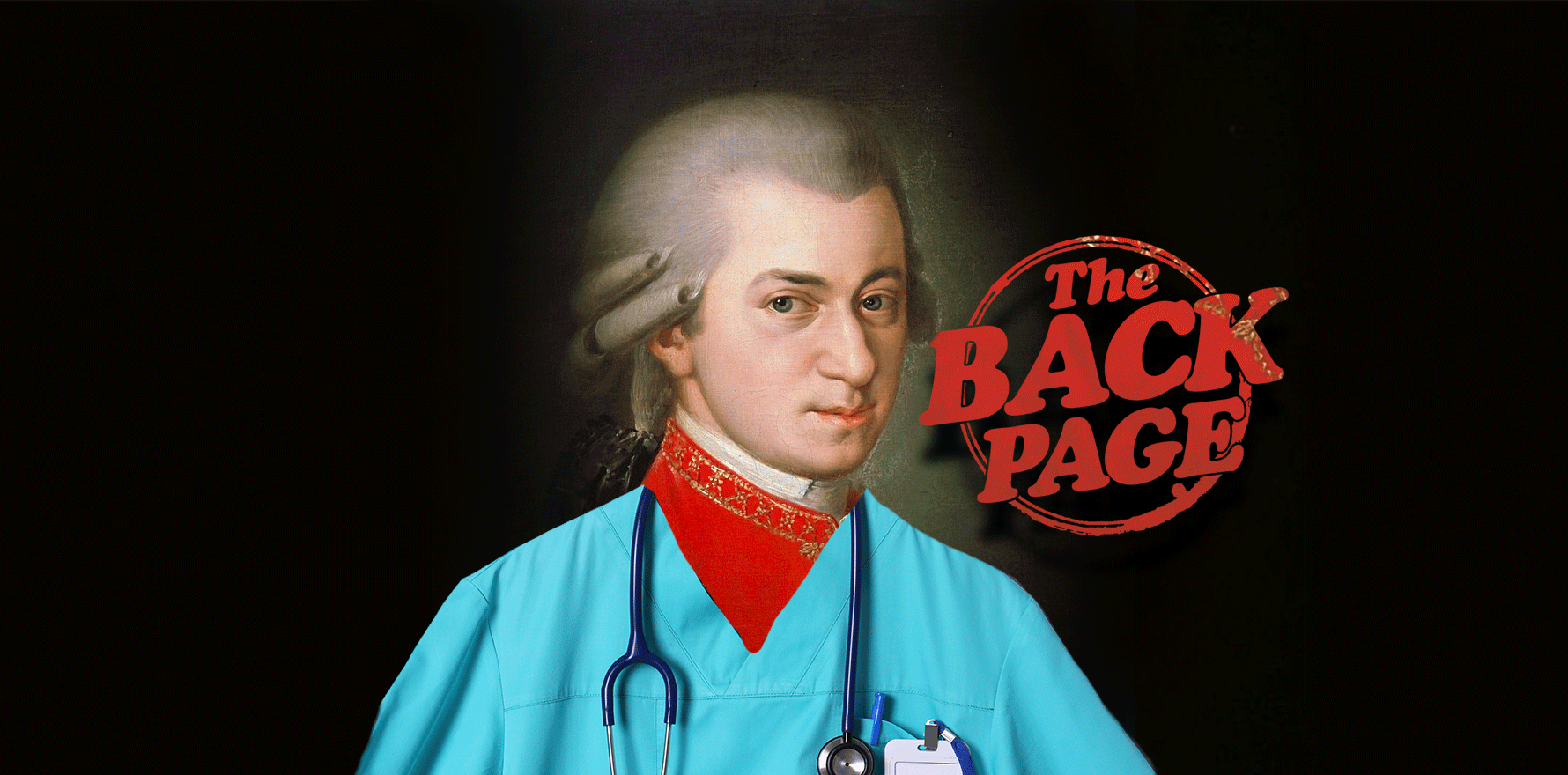The music of the greatest classical composer doesn’t really cure epilepsy or improve cows.
The Back Page likes nothing more than to kick back with a glass of red and the Requiem in D minor at full volume.
But just as well received was news that psychologists from the University of Vienna had visited their own dies irae on a bunch of hocus pocus which, for decades, has claimed unsubstantiated health benefits from the music of Mozart.
Associate Professor Jakob Pietschnig and Sandra Oberleiter show in a study published in Nature Scientific Reports yesterday that there is no evidence of a positive effect on epilepsy.
One feels for the poor YouTubers commenting on a particularly fine performance of the Piano Sonata in D for Two Pianos.
“I’m here after learning this piece reduces epileptiform discharges by an astounding 32%,” gushes Bryan. “Indeed, music is healing. Mozart was a true genius.”
“I have epilepsy and this piece of music has decreased my seizure activity sooo much,” enthuses Nick.
And there’s plenty more where that came from.
For years – propped up by bunkum masquerading as medical research – Mozart’s music has been associated with a whole gamut of positive effects on humans, animals, and even microorganisms.
Listening to the Sonata for Two Pianos has been alleged to increase the intelligence of adults, children, or fetuses in the womb. Even cows were said to produce more milk, and bacteria in sewage treatment plants were said to work better when they heard something from Salzburg’s finest.
Some studies claimed symptom relief in epilepsy patients after they had listened to said sonata.
No doubt somebody has pitched The Magic Flute as an alternative to covid vaccination too.
Most of these claims have no evidence. One of the culprits is the long-since debunked observation of a temporary improvement in spatial reasoning test performance among students after listening to the first movement of the two pianos sonata.
Pietschnig and Oberleiter trawled through all the “scientific” literature on this topic and believe they’ve put the issue to bed once and for all.
“None of our formal statistical syntheses investigating effects of either Mozart’s sonata KV448 or any other type of music compared to non-musical stimuli yielded any significant summary effects,” they wrote.
“Although some of the observed effects were non-trivial in terms of strength, examinations of the accumulated study power indicated that the available evidential value was insufficient.”
The title of their paper – Unfounded authority, underpowered studies, and non-transparent reporting perpetuate the Mozart effect myth – says it with gusto.
Only a true virtuoso would send story ideas to penny@medicalrepublic.com.au.


